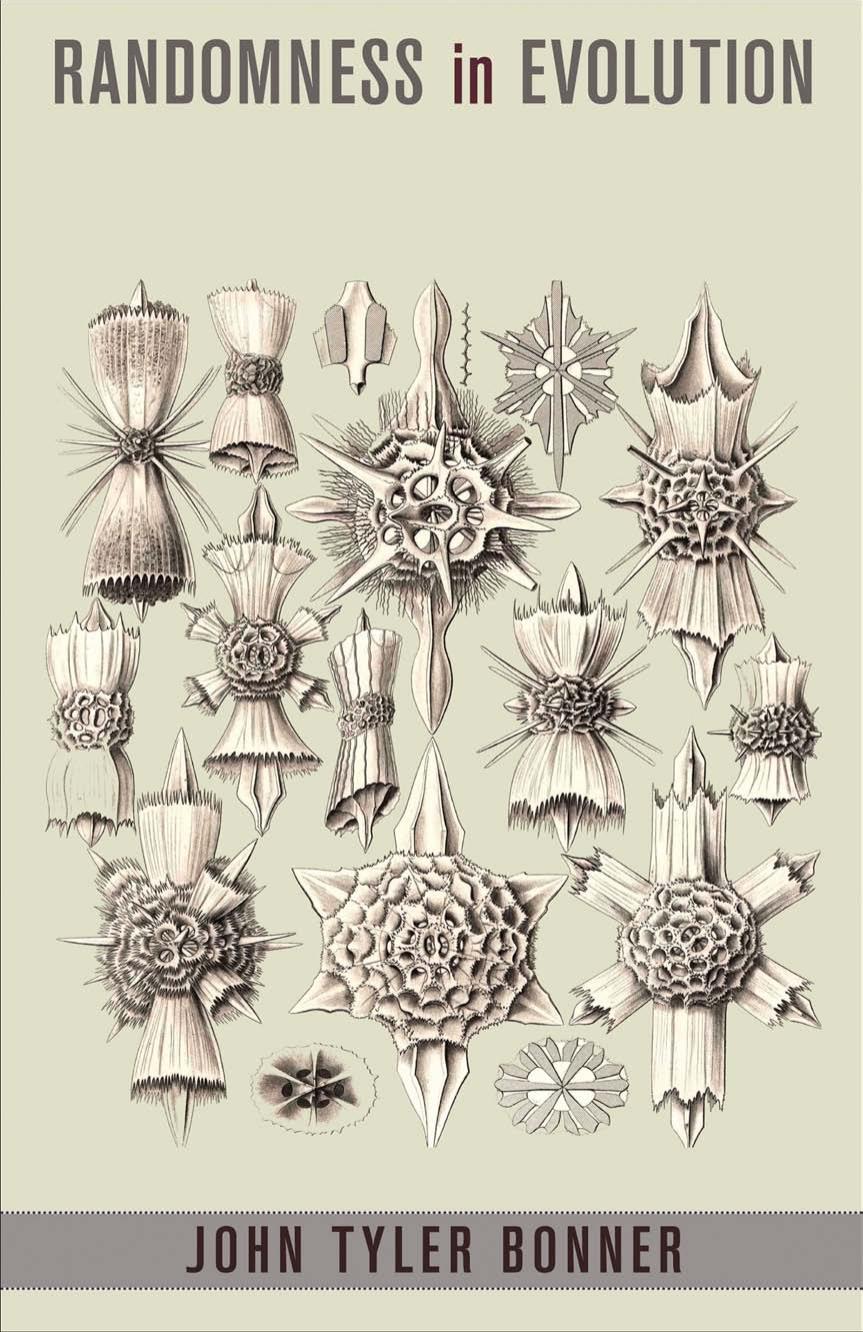Randomness in Evolution by John Tyler Bonner

Author:John Tyler Bonner [Bonner, John Tyler]
Language: eng
Format: azw3, pdf
Publisher: Princeton University Press
Published: 2013-03-21T04:00:00+00:00
An important way of reducing the effect of randomness is to become bigger, as have all large multicellular organisms. The results of random mutations are filtered by the vast number of steps they go through to produce an adult animal or plant. Each step goes under the absolute scrutiny of “internal selection”; there are virtually no opportunities for any deleterious change to survive this sequence of steps that we know as development.
This does not mean that every step, every final morphology is determined genetically, nor is it determined by chance. As D’Arcy Thompson28 and some current authors29 have pointed out, often physical forces, for instance surface tension and adhesion, cap all other influences and can play a major role in the formation of particular morphologies.
Large organisms are unlikely to have an overall neutral morphology like small ones, and the reason is to be found in their elaborate development. The greater the size, the more developmental steps. The voyage from a single cell, a fertilized egg, to a large, mature organism with millions of cells is a process that cannot be chaotic, but must be controlled if it is to achieve a consistent ultimate shape from generation to generation. There can be no significant deviation from those set steps to get from one generation to the next.
Let us look at those multitudinous steps in some detail.
The Origins of Multicellularity
What we want to do is examine in some detail the creation of complexity—to follow the steps involved. A good place to do this is in the origin of multicellularity. Any multicellular organism we look at today is so complex we cannot help but wonder how it got that way. We do not accept the idea that it arose full blown from the head of Zeus; it must have had a beginning. Furthermore, as I have already pointed out, there were numerous origins, for multicellularity was invented a number of times. The great difficulty is that all those well-established origins occurred eons ago, and the only way we can reconstruct them is by hypothesis, by bald guesswork. (Of course there could be new inventions of multicellularity occurring today, but how could we ever find them?) Yet such thought experiments can give us some general idea of how complexity might have evolved and therefore some understanding of how it continues to do so.
The current approach to the complexities of multicellularity is largely to find a way of reducing that complexity to simple rules. This is “systems analysis,” and mathematical modeling is one of the main tools to make sense of the great tangle of information. The very same approach has been used to simplify the complexity of the brain with continuing effect. This is indeed the wave of the future and should be vigorously encouraged. It is a top-down approach trying to sort out all the morass of details so that we can understand the composition of multicellularity and how it ticks. There are numerous enterprises all over the globe that are pursuing this approach and new light has been, and will continue to be, shed.
Download
This site does not store any files on its server. We only index and link to content provided by other sites. Please contact the content providers to delete copyright contents if any and email us, we'll remove relevant links or contents immediately.
Sapiens: A Brief History of Humankind by Yuval Noah Harari(14389)
Sapiens by Yuval Noah Harari(5372)
Pale Blue Dot by Carl Sagan(5008)
Homo Deus: A Brief History of Tomorrow by Yuval Noah Harari(4918)
Livewired by David Eagleman(3775)
Origin Story: A Big History of Everything by David Christian(3692)
Brief Answers to the Big Questions by Stephen Hawking(3435)
Inferior by Angela Saini(3316)
Origin Story by David Christian(3202)
Signature in the Cell: DNA and the Evidence for Intelligent Design by Stephen C. Meyer(3138)
The Gene: An Intimate History by Siddhartha Mukherjee(3098)
The Evolution of Beauty by Richard O. Prum(2997)
Aliens by Jim Al-Khalili(2830)
How The Mind Works by Steven Pinker(2816)
A Short History of Nearly Everything by Bryson Bill(2698)
Sex at Dawn: The Prehistoric Origins of Modern Sexuality by Ryan Christopher(2529)
From Bacteria to Bach and Back by Daniel C. Dennett(2485)
Endless Forms Most Beautiful by Sean B. Carroll(2483)
Who We Are and How We Got Here by David Reich(2437)
